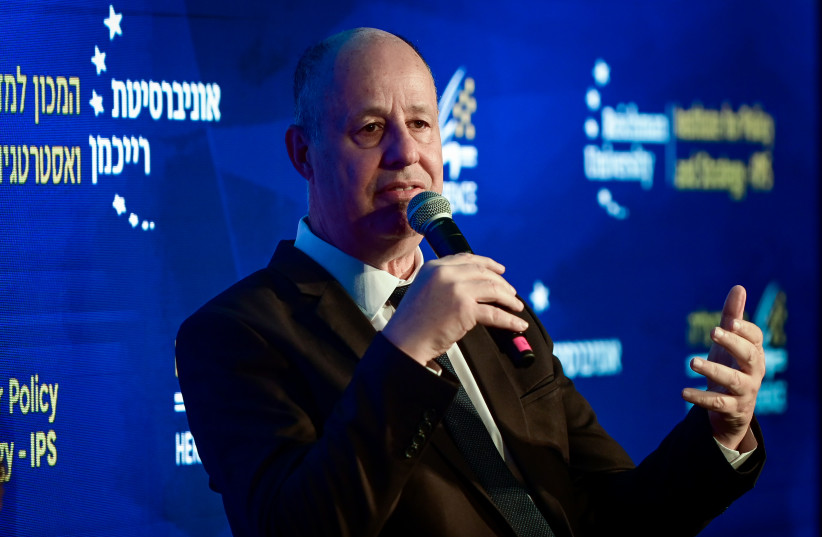Israel will not agree to a ceasefire without a mass release of hostages taken by Hamas terrorists into Gaza, National Security Council head Tzachi Hanegbi said on Friday afternoon.
Hanegbi further said that the decision to send fuel into the Strip was made to "prevent the spread of disease."
He also said that before a decision was made, a consultation was held with senior security officials: "Their unequivocal opinion was that it was possible to accept the US request and this is indeed the decision that was made."
Hanegbi also said: that the IDF "are now in the heart of Gaza City, in all the places we wanted to hit. Thousands of terrorists have been killed, all the targets that the cabinet has approved one by one. We will not stop until all the military and governmental qualities of Hamas and Jihad are eliminated."
"The return of the hostages is not an easy goal to achieve, but it is a central goal, and the cabinet is united around the ways to achieve it," he added. "We've faced terrible pressures for a ceasefire and humanitarian truces without the release of hostages.

"The entire cabinet is united in that this is impossible. That's why after 42 days we didn't stop the progress even for a minute. When we know that hostages can be released - not a manipulative release - but a massive release, only then will we agree to a ceasefire. And even then, it will be a limited and short ceasefire, after which we will continue to achieve the objectives of the war.
"There is no deal for the release of abductees at this stage," he continued. "There is no consensus on any of the issues. We stand united that if there is such a deal, it will result in many families being able to be reunited with their loved ones."
At the end of his remarks, Hanegbi was asked about the criticism leveled by Finance Minister Bezalel Smotrich on changes being made to the war cabinet following the decision responding to the US request to move the fuel to Gaza and said: "The Prime Minister spoke with the Finance Minister and explained all the details to him. It was agreed that the cabinet will convene tomorrow and review the details."
Hanegbi also explained that the fuel entering Gaza would be "for the benefit of the wastewater treatment facilities in the Strip that are facing collapse" and is also "to prevent the spread of disease that would harm our soldiers there and the civilians there. We asked security officials whether the decision harms our objectives and all the security branches decided that it was possible to accept the US's request."
